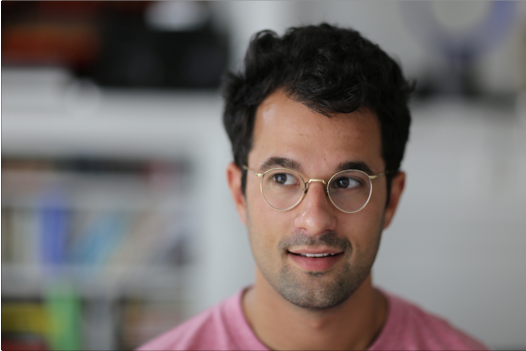When I ask David Shapiro Jr. what he thinks his byline could be, he non-descriptly tells me “a writer” would work best. Fair enough, given that David is a writer of many things. He started as the anon blogger Pitchfork Reviews Reviews but since then (and after slightly revealing his identity) he’s organized a zine, has written for Fuse, and freelances for various magazines. Other forthcoming projects include a screenplay he penned titled Unreachable by Conventional Means about selling weed via Craiglist (from the producers of The Kids Are All Right and scheduled to shoot later this summer), and authoring You’re Not Much Use to Anyone, a book about being financially supported by his parents after college (the hefty $40K advance he received should no doubt keep him off their payroll!), which will be put out by Amazon Publishing’s imprint Little A next year. Mostly though David is “a storyteller.” Dig into his PRR archive and you’ll find countless honest and vulnerable stories — relatable posts about his personal goings-on, his nights out encountering musicians, his suburban childhood, etc. — all told through his trademark humorous writing style that is part “fly on the wall,” part stream of consciousness, and part therapy session. Once again, David keeps things real with his response to our One Question below. —JL
What one book or piece of writing has changed the way you think about your own work?
Bukowski’s Factotum, I guess, was the best for me because it proves that you don’t have to be especially bright to write something extraordinary. This is more reassuring than anything else I’ve gotten from a book. Honestly, I haven’t really read very many books, so to me, even though Bukowski has acquired a reputation as something you grow out of by like age eighteen, it’s still good. There’s a book review by my book’s editor in Slate, and he quotes the book he’s reviewing, Russell Hoban’s Turtle Diary, describing some birds: “[They] walked with their heads down, looking as if they had hands clasped behind their backs like little European philosophers in yachting gear.'” What a killer sentence. But I could never write a sentence like that and I don’t think Bukowski could either. But people who read books value turns of phrase like that, so I guess, if you can’t write them, the only thing you can do is to be honest and forthcoming and hopefully people will still like it, even if you don’t have enough imagination to construct a plot or really draw characters or have any kind of compelling storyline. That’s why Bukowski, for me, is the best. When people would ask him what his books were about, he would say, “Everything,” which is the answer you give when your book isn’t really about anything. That strikes me as a good answer that I’m trying to adopt for my own book. I’m not sure what else there is to say about Bukowski because anyone who is reading this site right now already has an opinion about him and has either read his stuff or decided they’ll never read his stuff (or never read it again), so now it seems like I should have picked something different that readers might be turned on to (which seems like the point of this questionnaire), but as I said, I don’t really read very many books. Almost no books at all, actually. So Bukowski it is.![]()
